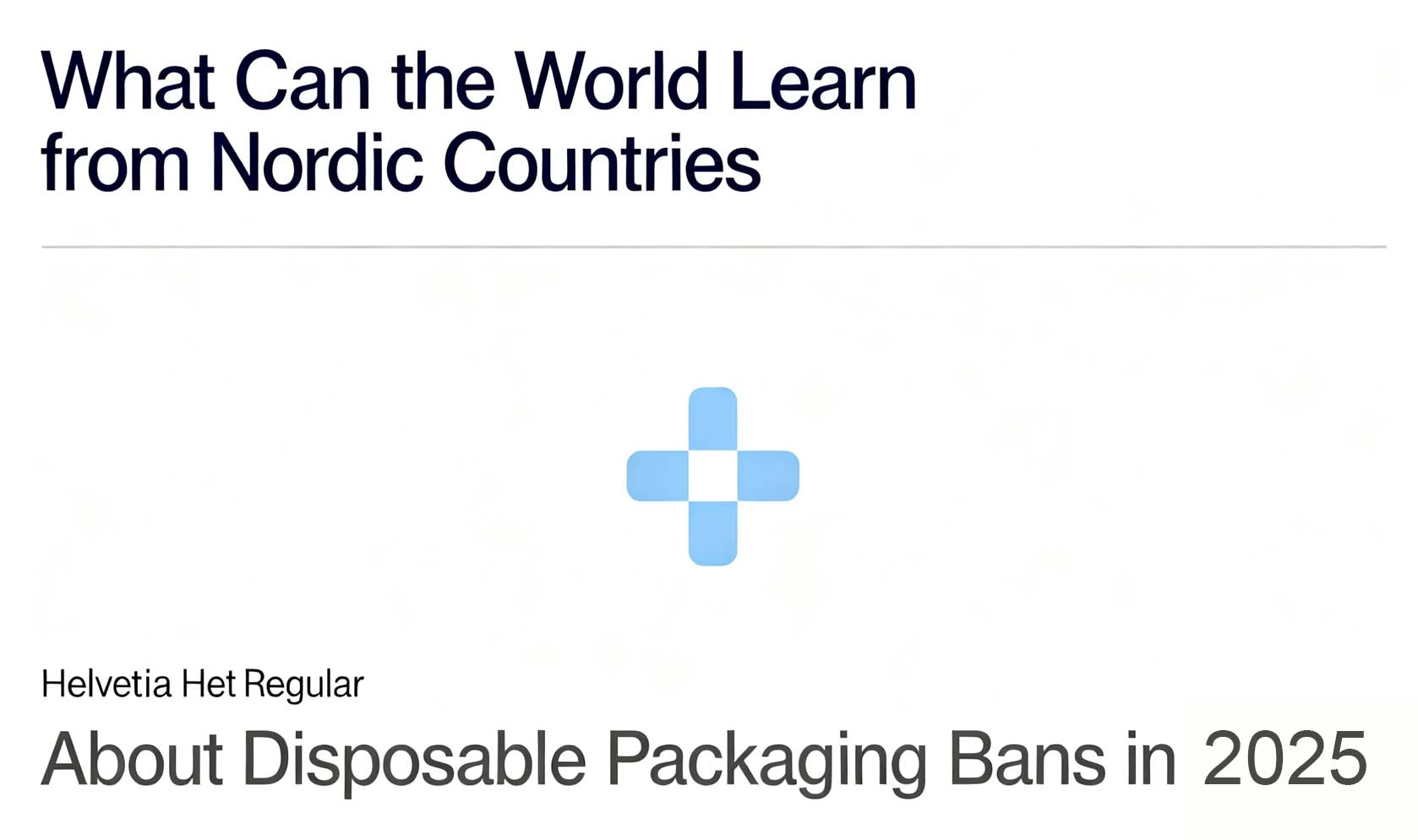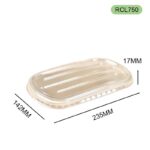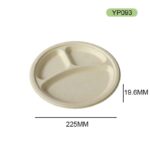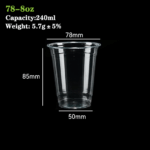Quick Summary
By 2025, Nordic countries—Sweden, Norway, Denmark, and Finland—have set the benchmark for sustainable takeaway packaging. Through strict policies on single-use plastics and foam containers, combined with adoption of compostable materials like bagasse, PLA, and kraft paper, these nations provide a blueprint for the global foodservice industry. Businesses and packaging manufacturers can learn from their approach to regulatory compliance, consumer expectations, and innovative eco-friendly solutions.
Introduction – Why the Nordics Lead in Sustainable Takeaway Packaging
Nordic countries have become global pioneers in regulating and transforming takeaway packaging. With stringent restrictions on disposable plastics, including polystyrene containers and cutlery, they have embraced plant-based alternatives such as bagasse, PLA, and kraft paper. By 2025, their combined regulations are shaping not only domestic markets but offering practical guidance for foodservice brands, B2B buyers, and packaging manufacturers worldwide.
Sweden: From Plastic Tax to Circular Packaging Mandates
Regulatory Overview:
Sweden introduced a plastic bag tax in 2020 and has since expanded legislation to cover all packaging sectors. Its rules align with the EU Single-Use Plastics Directive (SUP Directive), banning items like plastic cutlery, straws, and polystyrene clamshells.
Industry Impact:
Major brands, including Espresso House and Max Burgers, have switched to PLA-coated paper cups and bagasse takeaway containers. Eco-conscious Swedish consumers now expect sustainable packaging as standard.
Recommended Compostable Options:
-
PLA Cold Cups: Certified compostable and fully printable for retail chains.
-
Bagasse Clamshells: Leak-proof, sturdy, and 100% fiber-based for restaurants.
Norway: Aligning Voluntarily with EU SUP Regulations
National Enforcement:
Norway adopts the EU SUP Directive despite not being an EU member, applying fines for non-compliance. Foam containers, plastic cutlery, and plastic-covered trays are banned.
Industry Response:
Retail chains like Deli de Luca and Narvesen now rely on bagasse boxes and PLA cutlery. Convenience stores and highway cafés are also shifting to compostable packaging.
Recommended Compostable Options:
-
Compostable Cutlery Sets: Durable, BPI-certified, and oil-resistant.
-
Bagasse Meal Trays: Replace foam or plastic trays in institutional and convenience catering.
Denmark: Green Procurement Meets Eco-Design
Government-Led Initiatives:
Denmark mandates that public institutions buy only recyclable, reusable, or compostable packaging. The Danish Climate Agreement targets a 50% reduction in single-use packaging waste by 2030, starting with tiered 2025 goals.
Private Sector Adoption:
Food festivals, catering, and airport concessions now require traceable compostable packaging. Compostable tableware now makes up 61% of disposable packaging in public tenders.
Recommended Compostable Options:
-
Bagasse Lunch Boxes & Trays: Oil-resistant and microwave-safe for hot meals.
-
Printed PLA Cups: Certified for cold beverages and café use.
Finland: Toward a Zero-Plastic Foodservice Industry
National Strategy:
Finland’s “Plastic Roadmap” aims for zero plastic packaging waste by 2030. By 2025, non-compostable plastics are being phased out. Subsidies and tax incentives encourage plant-based alternatives.
Industry Uptake:
Convenience stores and campus cafeterias increasingly use bagasse clamshells and kraft paper salad bowls. Compostable packaging sales grew 28% from 2021–2024.
Recommended Compostable Options:
-
Bagasse Round Bowls: Leak-proof lids for soups and curries.
-
Cornstarch Cutlery: Lightweight, compostable, and safe for grab-and-go meals.
Why Compostable Materials Are Thriving in the Nordics
Compostable packaging adoption is driven by policy, consumer awareness, and environmental science.
| Material | Heat Resistance | Certification | Decomposition Time | Typical Use |
|---|---|---|---|---|
| Bagasse | Up to 120°C | EN13432, ASTM D6866 | 90–120 days | Hot meals, trays, boxes |
| PLA | Up to 40°C | BPI, TUV OK Compost | 180 days | Cold cups, lids, straws |
| Kraft Paper | Variable | FSC, water-based lining | 60–120 days | Soup bowls, salad containers |
Studies show bagasse reduces lifecycle carbon emissions by up to 73% compared to polystyrene.
Case Study: Danish Meal Kit Brand Adopts Compostable Packaging
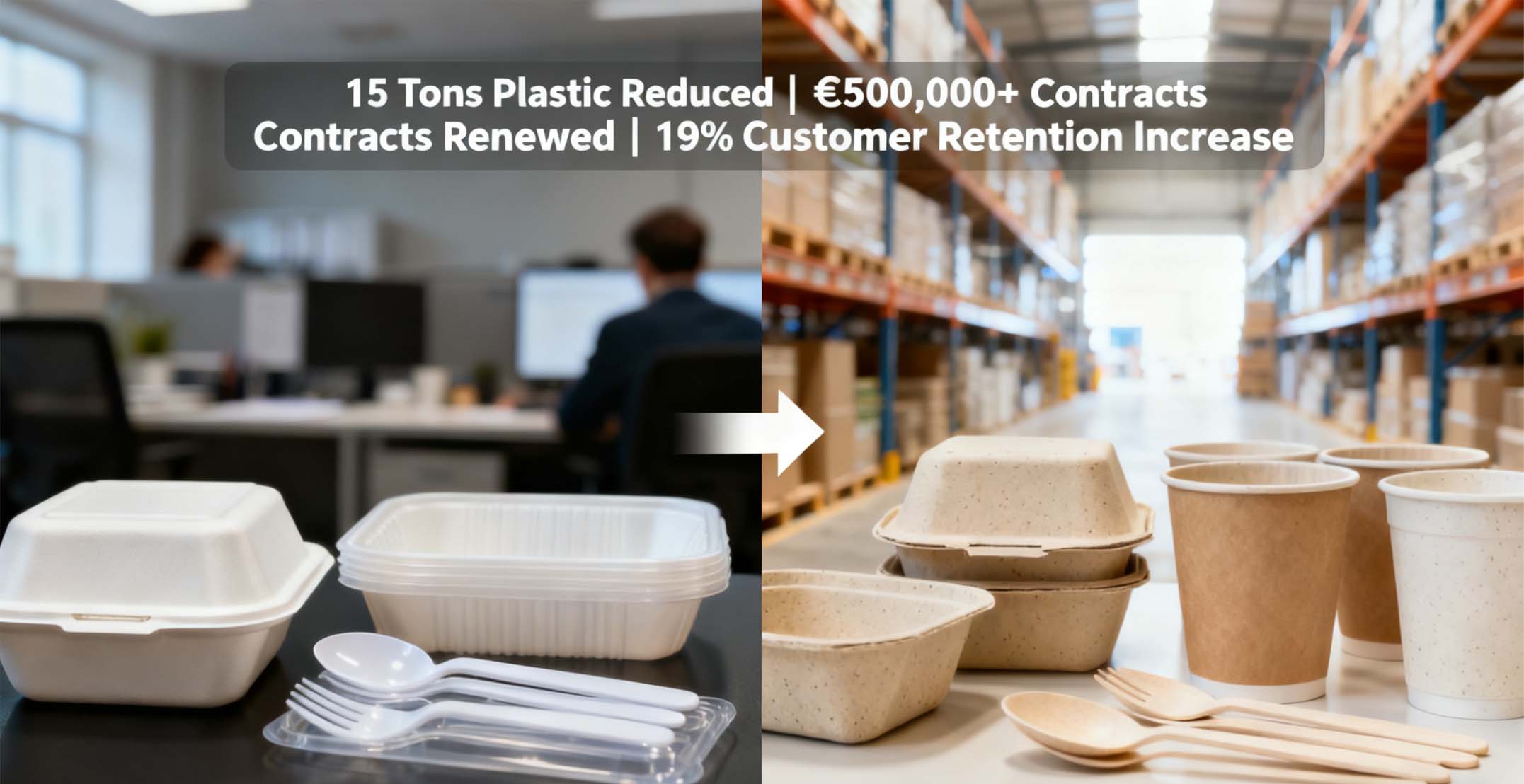
A Danish organic meal kit company faced exclusion from public tenders due to polystyrene and plastic cutlery. By switching to bagasse meal trays, kraft soup cups, and cornstarch cutlery:
-
Achieved full compliance with 2025 regulations
-
Renewed municipal contracts worth €500,000+
-
Reduced plastic waste by over 15 tons in six months
-
Increased customer retention by 19%
Global Takeaways from Nordic Packaging Policies
-
Plan Ahead: Anticipate country-specific bans and certification requirements.
-
Certifications Matter: EN13432, BPI, TUV standards are essential.
-
Life-Cycle Evaluation: Choose low-carbon-footprint, fast-composting materials.
-
Partner with Experts: Work with suppliers familiar with regional laws and sustainability goals.
Conclusion
The Nordics demonstrate that a zero-plastic, sustainable takeaway packaging model is achievable. Their combination of regulation, innovation, and consumer awareness offers a replicable blueprint for global foodservice brands.
DASHAN supports this transition with a complete portfolio of certified compostable tableware, including bagasse clamshells, PLA cups, and cornstarch containers, helping brands align with Nordic-inspired packaging standards in 2025.
FAQs – People Also Ask
-
What packaging materials are banned in the Nordics?
Single-use plastics like polystyrene containers, plastic cutlery, and non-compostable straws. Bagasse, PLA, and kraft paper are approved alternatives. -
Why are Nordic countries leaders in sustainable takeaway packaging?
Strong environmental laws, green procurement programs, and consumer awareness drive early adoption of compostable solutions. -
What are the benefits of compostable containers?
Reduce landfill waste, ensure regulatory compliance, and enhance brand perception. -
How do bagasse and PLA comply with EU laws?
Certifications like EN13432 and ASTM D6400 guarantee industrial compostability and food safety. -
Can international brands sell compostable products in the Nordics?
Yes, with proper certification (EN13432, BPI, TÜV OK Compost) and labeling.
References
-
European Commission – Single-Use Plastics Directive Explained: link
-
Miljødirektoratet – Norway’s SUP Directive Implementation: link
-
Nordic Innovation – Sustainable Packaging in the Nordics, 2024: link
-
Wikipedia – Bagasse: link
Disclaimer & Copyright Notice
This article is created by the Dashan Packing editorial and research team.
All information presented here is for educational and industry reference purposes only.
Some data and standards cited in this article are sourced from publicly available materials,
official regulatory documents, or third-party publications, which are properly credited where applicable.
All rights to third-party trademarks, images, and content belong to their respective owners.
If any copyrighted material has been used inadvertently, please contact us at angel@chndashan.com.
We respect intellectual property rights and will promptly remove or revise any material upon verification.


